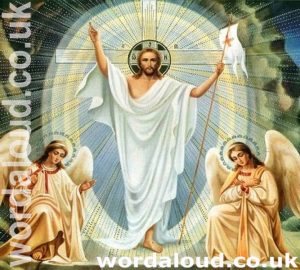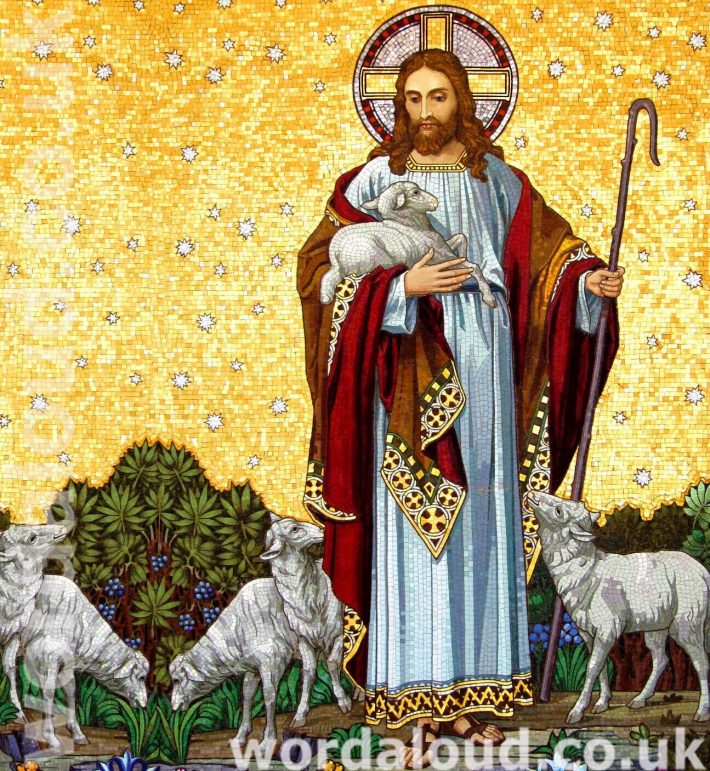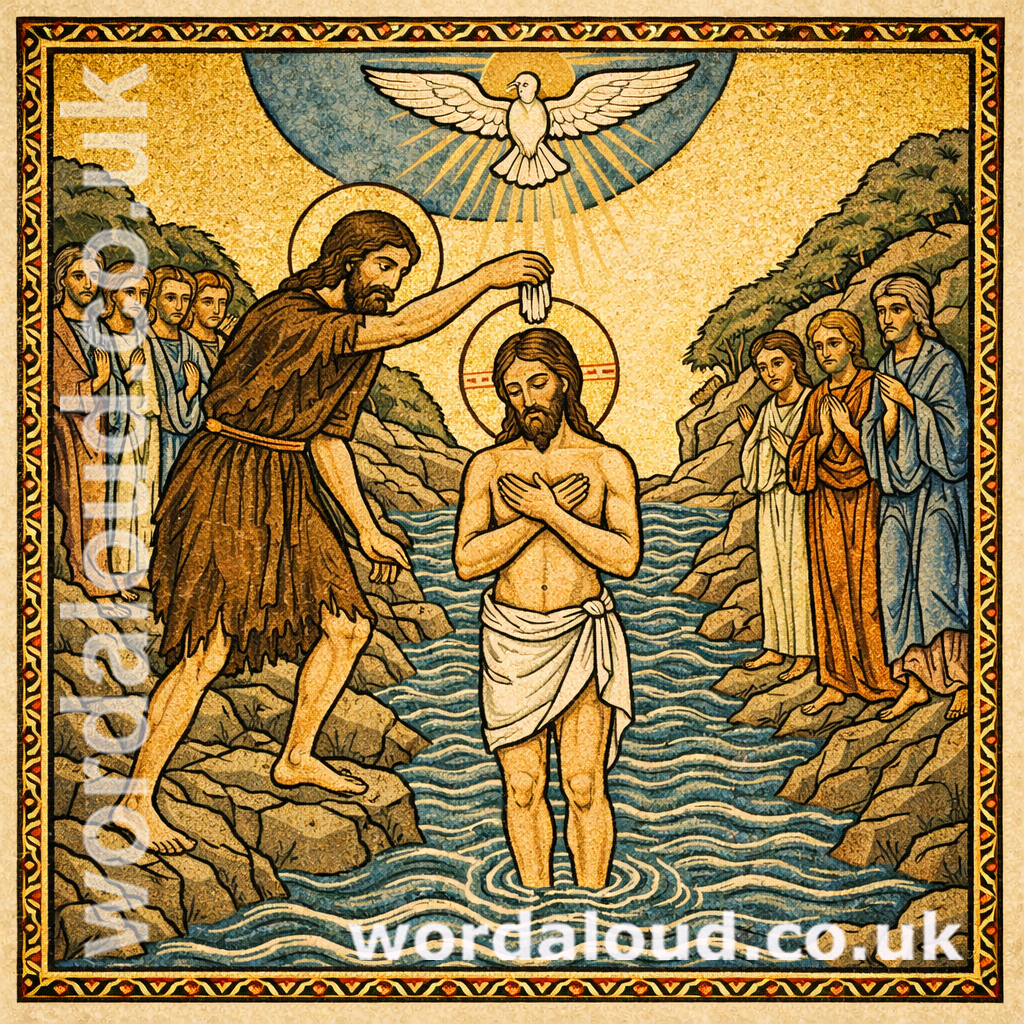Christian Art | Jesus Christ The Good Shepherd
Office Of Readings | Week 24, Monday, Ordinary Time | From The Sermon Of Saint Augustine On The Shepherds | Shepherds Feeding Themselves
‘The shepherds who feed themselves.’
Saint Augustine reflects on Ezekiel 34, where God condemns unfaithful shepherds who exploit the flock for their own benefit while neglecting their pastoral duties. The text distinguishes between the shepherds’ concern for themselves and their neglect of the sheep. The imagery of consuming milk and wearing wool symbolises the material benefits that leaders receive from their communities. These are not illegitimate in themselves, as Paul’s writings indicate, but they become corrupt when they are detached from genuine pastoral care.
Augustine draws attention to Paul’s discussion in 1 Corinthians 9:7–14. The apostle affirms that those who preach the Gospel have the right to live from it, just as shepherds rightly drink the milk of their flock. Yet Paul chooses not to exercise this right, supporting himself through manual labour. Augustine interprets this as an expression of generosity and mercy, a decision that goes beyond obligation. Paul’s example reflects a concern for the fruitfulness of the flock: he is less interested in receiving material support than in ensuring that the people remain spiritually active and generous.
The comparison with the Good Samaritan reinforces this point. The Samaritan not only provides immediate aid but also promises to cover any additional expense. In Augustine’s reading, Paul’s ministry mirrors this readiness to go beyond what is required. The apostle sacrifices his own comfort for the sake of the Church, exemplifying the kind of pastoral care that contrasts with the neglect condemned in Ezekiel.
At the same time, Augustine is careful not to condemn those who accept the material support of the faithful. He maintains that such provision is lawful and even divinely instituted. The issue is not the reception of support, but the failure to provide care in return. True shepherds, whether or not they take the milk of the flock, are distinguished by their dedication to strengthening the weak, healing the sick, and seeking the lost.
This reflection highlights Augustine’s concern with the responsibilities of Christian leadership. Material benefits may accompany pastoral ministry, but they cannot be its purpose. The shepherd’s first duty is to nurture the flock, and his legitimacy depends on the service he renders to those entrusted to him.

From The Sermon Of Saint Augustine On The Shepherds | Shepherds Feeding Themselves
Let us consider the unflattering words of God which Scripture addresses to shepherds who feed themselves and not the sheep. You consume their milk and cover yourselves with their wool; you kill the fatlings, but my sheep you do not pasture. You have failed to strengthen what was weak, to heal what was sick, and to bind up what was injured. You did not call back what went astray, nor seek out what was lost. What was strong you have destroyed, and my sheep have been scattered because there is no shepherd.
This is spoken to the shepherds who feed themselves and not the sheep; it speaks of their concern and their neglect. What is their concern? You consume their mild and cover yourselves with their wool. And so the Apostle asks: Who plants a vineyard and does not eat from its fruit? Who pastures a flock and does not drink from the mild of the flock? Thus we learn that the milk of the flock is whatever temporal support and sustenance God’s people give to those who are placed over them. It is of this that the Apostle was speaking in the passage just quoted.
Although he chose to support himself by the labor of his own hands and not to ask for milk from the sheep, the Apostle did say that he had the right to receive the milk, for the Lord had established that they who preach the Gospel should live from the Gospel. Paul also says that other of his fellow apostles made use of this right, a right granted them, and not unlawfully usurped. But Paul went further by not taking what was rightfully his. He forgave the debt, whereas the others did not demand what was not due them. Therefore Paul went further. Perhaps his action was foreshadowed by the Good Samaritan who, when he brought the sick man to the inn, said: If you spend any more, I will repay you on my way back.
What more can I say concerning those shepherds who do not need the milk of the flock? They are more merciful; or rather, they carry out a more abundant ministry of mercy. They are able to do so, and they do it. Let them receive praise, but do not condemn the others. The Apostle himself did not seek what was given. However, he wanted the sheep to be fruitful, not sterile and unable to give milk.
Christian Prayer With Jesus
Lord Jesus, the Good Shepherd,
you came not to be served but to serve.
Strengthen all who are entrusted with the care of your flock.
Guard them from self-interest,
and give them hearts ready to heal the wounded,
to seek the lost,
and to feed your people with the bread of life.
Grant that your Church may be led by those
who follow your example of humble service,
so that all may grow strong in faith,
and rejoice in your salvation.
Amen.
Glossary Of Christian Terms
Shepherds – Biblical image for leaders of God’s people, especially priests, bishops, and pastors.
Flock – The community of believers, the people of God.
Milk of the flock – A metaphor for the material support provided by the faithful to their ministers.
Wool of the flock – Symbol of comfort or benefit drawn from the community.
Fatlings – The well-fed animals of the flock, here representing the strong or prosperous members of the community.
Good Samaritan – Parable told by Jesus (Luke 10:29–37), illustrating mercy and care for the wounded.
Inn – In Augustine’s interpretation, the Church, where the wounded are brought for healing.
Pasture – Image of spiritual nourishment and teaching given by faithful shepherds.








